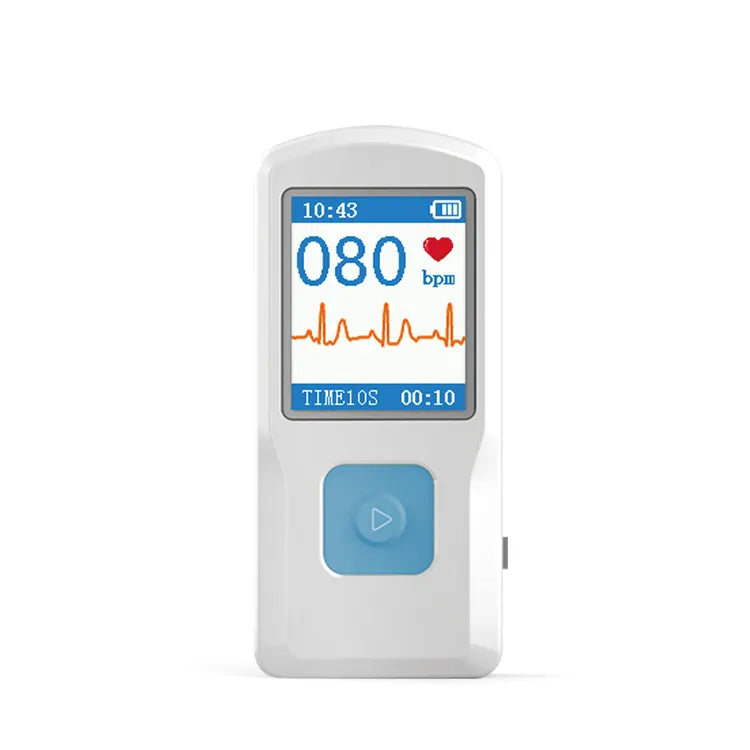Truth Unveiled: Accuracy of Digital Pregnancy Tests


In this article, we delve into the truth behind digital pregnancy tests to help you make an informed decision. We explore the science behind these tests, comparing them to traditional urine-based pregnancy tests, and examine their accuracy rates.
Accuracy is paramount when it comes to pregnancy tests, as a false positive or negative can have significant consequences for individuals and families. We sift through the data, separating fact from fiction, and provide you with the information you need to know.
So, if you're considering using a digital pregnancy test, or simply curious about their accuracy, join us as we unveil the truth behind these modern devices. Let's separate myth from reality and shed light on this important topic.
How do digital pregnancy tests work?

Digital pregnancy tests work by detecting a hormone called human chorionic gonadotropin (hCG) in a woman's urine. This hormone is produced by the placenta after implantation occurs. Traditional urine-based pregnancy tests use a chemical reaction that changes the color of a test strip to indicate pregnancy. Digital tests take it a step further by displaying the results in words, such as "pregnant" or "not pregnant," eliminating any confusion caused by interpreting lines or symbols.
The process of using a digital pregnancy test is simple. After removing the cap, you expose the absorbent tip to your urine stream or collect a urine sample in a clean cup and then dip the absorbent tip into the urine. The test will analyze the sample and display the results on a digital screen within a few minutes. It's important to note that each digital pregnancy test may have specific instructions, so it's crucial to read the manufacturer's guidelines before use.
Accuracy of digital pregnancy tests
Accuracy is paramount when it comes to pregnancy tests, as a false positive or negative can have significant consequences for individuals and families. Digital pregnancy tests claim to be highly accurate, with some manufacturers boasting over 99% accuracy in detecting pregnancy. However, it's essential to understand that these claims are based on ideal testing conditions.
In reality, the accuracy of digital pregnancy tests can vary depending on several factors, including the sensitivity of the test, the timing of testing, and the concentration of hCG in the urine. Sensitivity refers to the level of hCG that a test can detect. Some digital tests may have a lower sensitivity than others, meaning they may not detect pregnancy as early as more sensitive tests.
Timing is another crucial factor that can affect the accuracy of digital pregnancy tests. Testing too early, before implantation has occurred or before hCG levels have risen sufficiently, can result in false negatives. It's recommended to wait until you have missed your period or at least one week after the expected start of your period to achieve the most accurate results.
The concentration of hCG in the urine can also impact the accuracy of digital pregnancy tests. In the early stages of pregnancy, hCG levels may be low, making it more challenging for the test to detect pregnancy. If you suspect you're pregnant but receive a negative result, it's advised to wait a few days and retest to allow hCG levels to rise further.
Factors that can affect the accuracy of digital pregnancy tests
Digital pregnancy tests and traditional urine-based pregnancy tests both aim to detect hCG in a woman's urine. However, there are some key differences between the two.
One significant difference is the way the results are displayed. Traditional tests use lines or symbols to indicate pregnancy, which can sometimes be confusing to interpret. Digital tests, on the other hand, display the results in clear words, leaving no room for interpretation. This can be particularly helpful for those who may struggle with reading or understanding the traditional test results.
Another difference lies in the sensitivity of the tests. Digital tests, generally, have a higher sensitivity, meaning they can detect lower levels of hCG. This can allow for earlier detection of pregnancy compared to traditional tests. However, it's important to note that even the most sensitive tests may not be able to detect pregnancy immediately after conception, as it takes time for hCG levels to rise.
When it comes to ease of use, digital tests have an advantage. With traditional tests, you need to interpret the lines or symbols correctly, which can be subjective and prone to human error. Digital tests eliminate this uncertainty by providing clear and easy-to-understand results on a digital screen.
Comparing digital pregnancy tests to traditional pregnancy tests
To maximize the accuracy of digital pregnancy tests, here are some tips to keep in mind:

1. Read the instructions: Each digital pregnancy test may have specific instructions, so it's crucial to read and follow them carefully. This will ensure you are using the test correctly and obtaining accurate results.

2. Test with the first morning urine: The first urine of the day usually contains a higher concentration of hCG, making it an ideal time to test. However, if you're not able to test in the morning, it's still possible to get accurate results later in the day.

3. Wait for the right timing: Testing too early can result in false negatives. It's recommended to wait until you have missed your period or at least one week after the expected start of your period to achieve the most accurate results.

4. Use a reliable brand: Choosing a reputable and reliable brand of digital pregnancy test can increase the chances of accurate results. Look for tests that have been approved by regulatory agencies and have positive customer reviews.
Tips for using digital pregnancy tests effectively
There are several misconceptions surrounding digital pregnancy tests that we need to address:
1. "Digital tests are always more accurate than traditional tests": While digital tests can be highly accurate, it's important to remember that accuracy can vary depending on factors like sensitivity and timing. Traditional tests can also provide accurate results if used correctly.
2. "Digital tests can detect pregnancy immediately after conception": In reality, it takes time for hCG levels to rise to detectable levels. Even the most sensitive tests may not be able to detect pregnancy until a few days after implantation.
3. "A negative digital test means I'm not pregnant": False negatives can occur if the test is taken too early or if the concentration of hCG in the urine is too low. If you suspect you're pregnant despite a negative result, it's best to consult with a healthcare professional for further testing.
Common misconceptions about digital pregnancy tests
When it comes to choosing a digital pregnancy test, there are several popular options available. Here are some reviews and recommendations for trusted brands:
1. Clearblue Digital Pregnancy Test: This test is known for its accuracy and ease of use. It provides clear results in words and has a high sensitivity level, allowing for early detection of pregnancy.
2. First Response Digital Pregnancy Test: Another reliable option, the First Response Digital Pregnancy Test also offers clear and easy-to-understand results. It boasts a 99% accuracy rate and can detect pregnancy up to six days before the missed period.
3. Pregmate Digital Pregnancy Test: This affordable digital test is highly rated by users. It provides accurate results within minutes and is known for its sensitivity in detecting low levels of hCG.
Reviews and recommendations for popular digital pregnancy tests
While digital pregnancy tests are designed to provide accurate results, it's important to consult with a healthcare professional for confirmation if you receive a positive result or have any doubts. A healthcare professional can perform a blood test or ultrasound to confirm pregnancy and provide personalized guidance and support throughout your pregnancy journey.
It's also crucial to seek medical attention if you experience any symptoms of pregnancy complications, such as severe abdominal pain, heavy bleeding, or dizziness. Prompt medical care is necessary to ensure the health and well-being of both you and your baby.
When to consult a healthcare professional for confirmation
Digital pregnancy tests can be a convenient and reliable option for detecting pregnancy. While they offer clear and easy-to-understand results, it's important to remember that accuracy can vary depending on factors like sensitivity and timing. By understanding how these tests work and following the tips for effective use, you can maximize the chances of obtaining accurate results.
Remember, a positive result on a digital pregnancy test should be confirmed by a healthcare professional, and any concerns or questions should be discussed with them. Pregnancy is an exciting and life-changing journey, and ensuring accurate results is the first step towards proper prenatal care and planning for the future.
Conclusion for the benefits of digital pregnancy test
Digital pregnancy tests work by detecting the presence of human chorionic gonadotropin (hCG), a hormone produced by the placenta during pregnancy, in a woman's urine. These tests are designed to provide a clear "pregnant" or "not pregnant" result, without the need for interpreting faint lines or symbols.
One of the main advantages of digital pregnancy tests is their ability to provide a more definitive answer. Unlike traditional tests, which rely on the interpretation of lines or symbols, digital tests display the result in clear words. This can help alleviate any confusion or uncertainty that may arise from ambiguous results.
Digital tests also offer additional features such as a timer to indicate the progress of the test and a memory function to store the result for future reference. These features can be particularly helpful for women who are actively trying to conceive and want to track their fertility journey.
Explore More Blogs of Products:
The Promising of Cholesterol Testing
What Advantages Of A Portable Mesh Nebulizer?
Hemoglobin Meter: Let's help people to monitor anemia
How to choose a better digital thermometer
WE RECOMMEND
Related posts
- Subscribe MedInsights
- Subscribe MedInsights
- Subscribe MedInsights
- Subscribe MedInsights
- Subscribe MedInsights









